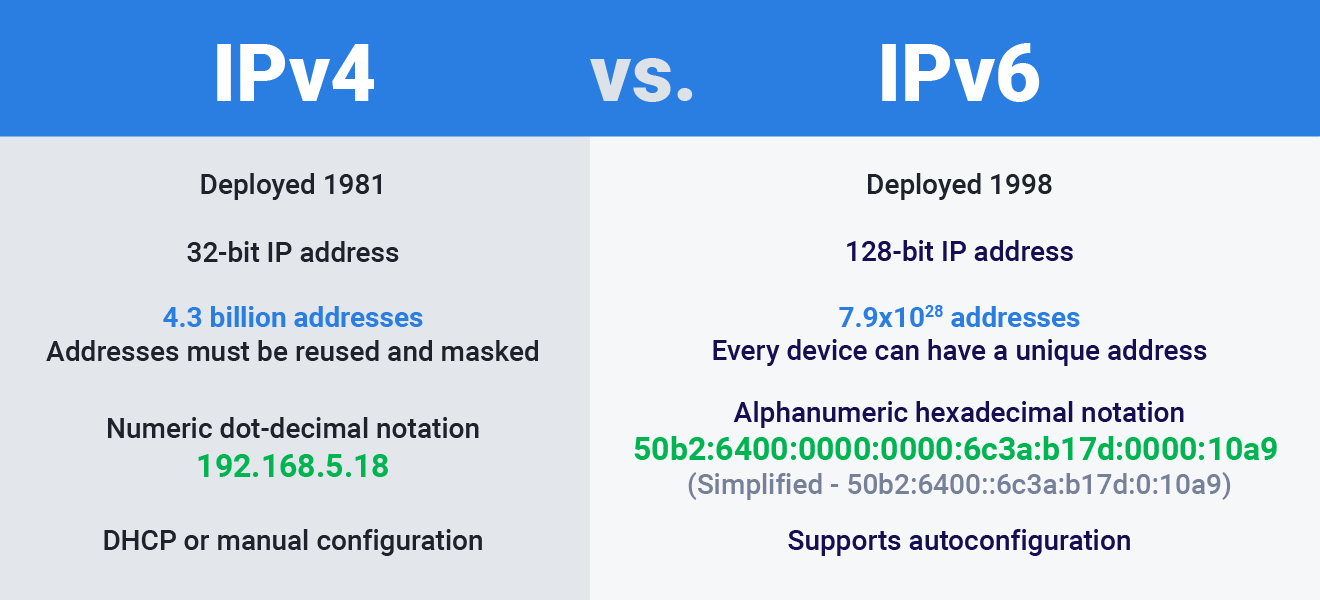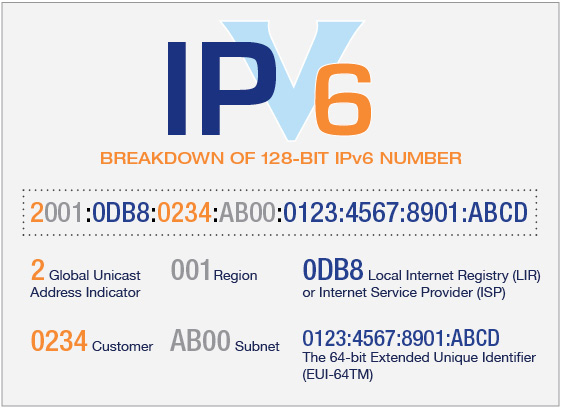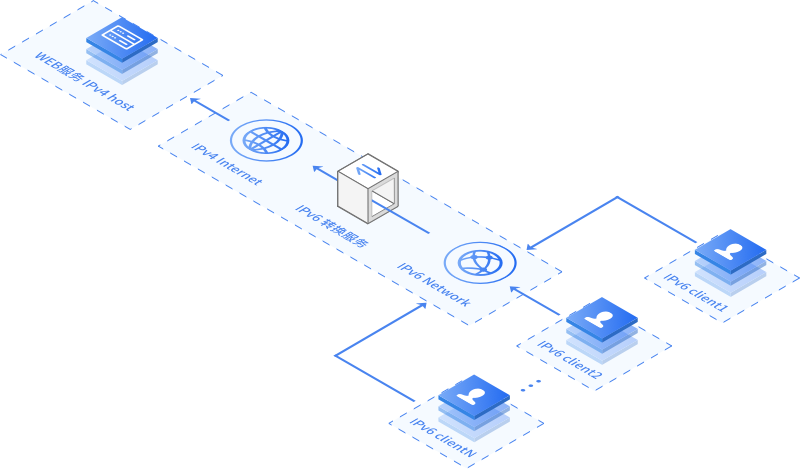IPv6 Network Overview
Since the biggest problem of IPv4 is the lack of network address resources, it has severely restricted the application and development of the Internet. The use of IPv6 not only solves the problem of the number of network address resources, but also solves the barriers for multiple access devices to connect to the Internet.
IPv6 has a larger address space. In IPv4, the length of the IP address is 32, and the maximum number of addresses is 2^32; and the length of the IP address in IPv6 is 128, that is, the maximum number of addresses is 2^128. Compared with the 32-bit address space, its address space has increased by 2^128-2^32.


IPv4 to IPv6 Technology
Network Address Translator (NAT) technology treats IPv4 addresses and IPv6 addresses as internal addresses and global addresses respectively, or vice versa. For example, when an internal IPv4 host wants to communicate with an external IPv6 host, the NAT server converts the IPv4 address (equivalent to an internal address) to an IPv6 address (equivalent to a global address), and the server maintains a mapping table between IPv4 and IPv6 addresses. Conversely, when the internal IPv6 host communicates with the external IPv4 host, the IPv6 host is mapped to an internal address, and the IPv4 host is mapped to a global address. NAT technology can solve the intercommunication problem between IPv4 host and IPv6 host.
Although IPv6 is only in the research stage worldwide, many technical problems have yet to be resolved, and the equipment supporting IPv6 is also very limited. But generally speaking, the development of global IPv6 technology continues, and with the exhaustion of IPv4, many countries have realized the advantages brought by IPv6 technology. In particular, China has promoted the development of IPv6 through some national-level projects. The first generation of the Internet is fully deployed and commercialized on a large scale. As various technologies of IPv6 become more and more perfect, problems such as high cost, slow development, and insufficient support will soon fade out of people’s vision.






